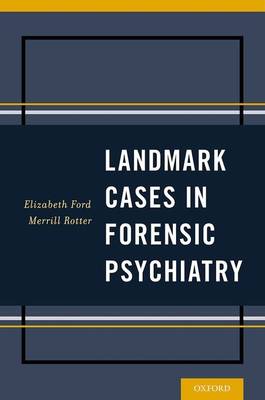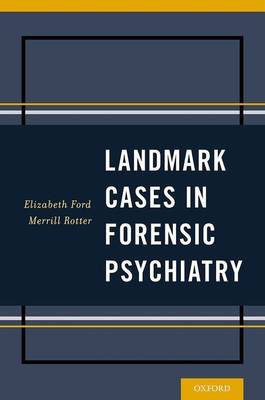
- Retrait gratuit dans votre magasin Club
- 7.000.000 titres dans notre catalogue
- Payer en toute sécurité
- Toujours un magasin près de chez vous
- Retrait gratuit dans votre magasin Club
- 7.000.000 titres dans notre catalogue
- Payer en toute sécurité
- Toujours un magasin près de chez vous
49,95 €
+ 99 points
Description
Forensic psychiatry (the interface of psychiatry and the law), forensic psychology, and mental health law are growing and evolving subspecialties in their respective larger disciplines. Topics included in these fields include a range as diverse as capital sentencing guidelines, informed consent, and standards of care for mental health treatment. All of these topics need to be understood and mastered by clinicians, educators, administrators and attorneys working with psychiatric patients. This book brings together concise, comprehensive summaries of the most important "landmark" legal decisions relating to mental health practice in the United States. These decisions, along with their underlying reasonings, make up a critical portion of the national certification examination for forensic psychiatry offered by the American Board of Psychiatry and Neurology (ABPN). Many of the themes are also tested in the ABPN certification examination for general psychiatry. This book is the first to provide a combination of summaries of the relevant legal content paired with board-style test questions designed to help consolidate knowledge and prepare for certification. Cases with similar themes are grouped together with an eye toward helping the reader understand the evolution of legal and clinical thinking on a particular topic. This book represents an important addition to the study tools and textbooks available related to psychiatry and the law and will serve as a useful reference for clinicians who must follow established legal requirements in their field.
Spécifications
Parties prenantes
- Auteur(s) :
- Editeur:
Contenu
- Nombre de pages :
- 240
- Langue:
- Anglais
Caractéristiques
- EAN:
- 9780199344659
- Date de parution :
- 24-06-14
- Format:
- Livre broché
- Format numérique:
- Trade paperback (VS)
- Dimensions :
- 155 mm x 231 mm
- Poids :
- 340 g







